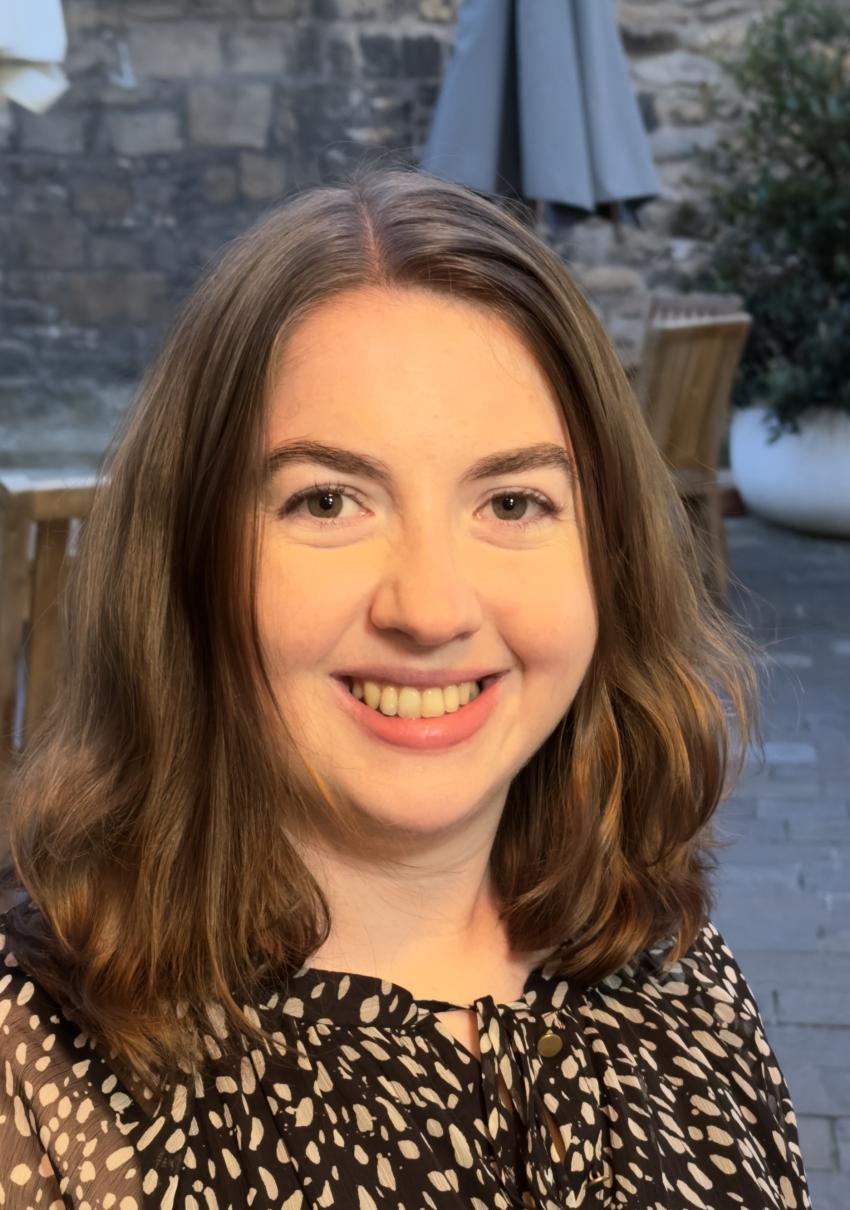An astronomer who specialises in dusty quasars and how they influence their host galaxies has been named as the winner of the 2025 Caroline Herschel Prize Lectureship.
Dr Victoria Fawcett, a research associate at Newcastle University, was also recognised for being an "exceptional role model and promoter of increasing diversity in astronomy and physics".
Her lecture topic will be: 'Unveiling the secrets of hidden supermassive black holes'.
Dr Fawcett said she was "extremely honoured" to be awarded this year's lectureship.
"Communicating my research to the public is one of the most enjoyable aspects of my job and I strongly encourage all scientists to get involved with science outreach," she added.
"I'm looking forward to the lecture and hope everyone will find black holes as fascinating as I do!"
The Caroline Herschel Prize Lectureship was established in 2018 by what is now the Herschel Society, in association with the Royal Astronomical Society (RAS), to celebrate Caroline’s memory by supporting promising women astronomers early in their careers.
Caroline, William's younger sister, started out as his assistant, but in time became recognised as an important astronomer in her own right, was the first to be paid as such, and was awarded the RAS Gold Medal in 1828.
Previous winners of the Caroline Herschel Prize Lectureship include Dr Heloise Stevance, Dr Marie Van de Sande, and Dr Alexandra Amon.
The award panel said Dr Fawcett had demonstrated excellence in research, including a strong publication record, and co-leadership of the working group on active galactic nuclei within the Dark Energy Spectroscopic Instrument (DESI) collaboration.
"She also has an outstanding track record in outreach and communication, focussed on young people in the North East of England," they added. "She speaks with great clarity and enthusiasm in public talks, and her lecture topic should be of great interest."
In 2022, Dr Fawcett hosted a talk at Durham Castle by Professor Dame Jocelyn Bell Burnell, a former president of the RAS who earlier this month was appointed a Companion of Honour (CH) in the King’s Birthday Honours.
The talk focused on women in STEM and ways to improve the current gender imbalance.
The Caroline Herschel Prize Lecture is hosted by the University of Bath in November in cooperation with the Herschel Society as part of the university's public lecture series.
Charles Draper, chairman of the Herschel Society, said: "Caroline Herschel turned her brother William's observations of galaxies and other deep sky objects into usable catalogues for future observers.
"She would have been fascinated to see what researchers such as Dr Fawcett can tell us today about the nature of those systems."
ENDS
Media contacts
Sam Tonkin
Royal Astronomical Society
Mob: +44 (0)7802 877700
Images and captions
Caption: Dr Victoria Fawcett has been named as the winner of the 2025 Caroline Herschel Prize Lectureship.
Credit: Supplied
Notes for editors
About the Royal Astronomical Society
The Royal Astronomical Society (RAS), founded in 1820, encourages and promotes the study of astronomy, solar-system science, geophysics and closely related branches of science.
The RAS organises scientific meetings, publishes international research and review journals, recognises outstanding achievements by the award of medals and prizes, maintains an extensive library, supports education through grants and outreach activities and represents UK astronomy nationally and internationally. Its more than 4,000 members (Fellows), a third based overseas, include scientific researchers in universities, observatories and laboratories as well as historians of astronomy and others.
The RAS accepts papers for its journals based on the principle of peer review, in which fellow experts on the editorial boards accept the paper as worth considering. The Society issues press releases based on a similar principle, but the organisations and scientists concerned have overall responsibility for their content.
Keep up with the RAS on Instagram, Bluesky, LinkedIn, Facebook and YouTube.
Download the RAS Supermassive podcast


